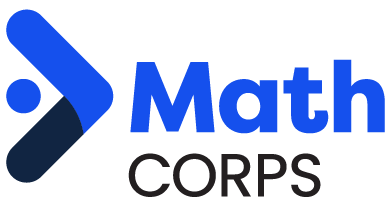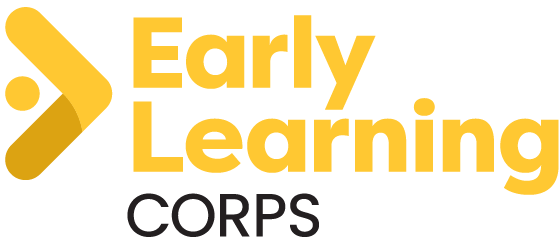
Those who join Michigan Education Corps are a member of an AmeriCorps service program, and are not entering into permanent employment. In exchange for service, interventionists receive a competitive living stipend, disbursed in bi-weekly payments throughout the term of service.
Upon successful completion of service, the member becomes eligible for an Education Award of up to $5,176.50. An interventionist typically commits to serving up to 10 months as an AmeriCorps member with Michigan Education Corps, depending on the specific position chosen.
MEC Interventionists play a vital role in providing extra language, literacy, and math skills through partnerships with preschools, elementary schools, and middle schools. Tailored to specific programs—Early Learning, Reading, or Math—they provide targeted instruction and intervention to individuals or small groups of students. Interventionists collect benchmark data and utilize program assessments to identify eligible students, implementing evidence-based interventions with age-appropriate materials. Supported by an Internal Coach, they continuously monitor progress to ensure student success. MEC Interventionists have diverse backgrounds, from recent graduates to retirees, members commit to serving throughout the school year, with weekly hour requirements based on their service term.
Yes, while this isn't an exhaustive list, here are some activities MEC Interventionists refrain from:
- Supplanting or replacing services provided by school or site employees.
- Engaging in duties required for school staff, such as lunch or playground duty, or non-literacy/Early Learning/Reading Corps/Math Corps tasks during the school day.
- Using student assessments provided by the school.
- Working with very low-performing students who require the assistance of a trained, licensed teacher.
- Implementing other school-based interventions or developing their own lesson plans.
- Making decisions about the best intervention for a student by themselves.
- Speculating on a student's progress or response to an intervention.
- Determining when a change in intervention is necessary or when to discontinue assistance for a student (coaches handle this).
Another important note, Interventionists do not have flexibility in their schedule to to decide when to arrive at or leave the school for the day. The service site will set forth a schedule for the member to follow.
Interventionists serving full-time dedicate between 30 to 37.5 hours per week, while those in part-time roles commit to 21 to 27.5 hours weekly. The precise commitment varies based on factors like the start date of service and the total hours required for the term.
MEC serves students statewide! Check out our interactive map to learn more about service sites near you.
To be eligible, you must:
- Be 18 years of age or older by two weeks before your start date.
- Hold at least a high school diploma or its recognized equivalent, or commit to obtaining one before using the Segal AmeriCorps Education Award.
- Be a citizen, national, or lawful permanent resident of the United States.
- Successfully pass mandatory National Service Criminal History Checks.
- Not have completed four or more prior terms of service with AmeriCorps State or National.
- Demonstrate fluency in speaking, reading, and writing English.
- Possess basic computer skills, including navigating online systems and email.
- Believe every student deserves their own success story!
MEC alumni embark on diverse paths, leveraging the skills, experience, and networking cultivated during their service term.
Many alumni contribute to the same school or district where they served, utilizing their gained expertise in various capacities. Others transition into roles as program staff for community programs or non-profit organizations, continuing their mission-driven work. Some alumni utilize their Education Award to pursue higher education, pursuing degrees ranging from Associates to Ph.D., enhancing their qualifications.
And, some forge their own unique life, education, and career paths, drawing on their enriched experiences to shape their futures autonomously.
But don't just take it from us! Listen to the firsthand experience of Isabel Blanks', an MEC Alum, as she shares her career journey in a prior alumni panel.
Absolutely! In addition to the Education Award, MEC offers various credit-bearing and credentialing opportunities tailored to different interests within the education field:
- Child Development Associates Credential: Early Learning Corps Interventionists can earn a significant portion of their hours toward this credential while serving with MEC. This credential opens doors to assistant teacher positions in federal and state-funded preschool programs, as well as lead teacher roles in private preschool classrooms.
- Mi-YDA Credential: In collaboration with the Michigan Department of Education (MDE), MEC will offer the MiSAYD credential to K-3 Reading Corps and MEC Math Corps interventionists in the 2024-2025 school year. This credential equips individuals to work effectively with school-age youth, offering developmentally appropriate support.
- Graduate Certificate and Master of Urban Education Programs: MEC interventionists have the opportunity to apply for Davenport University's Graduate Certificate of Urban Education and Master of Urban Education programs. Through a combination of the Segal AmeriCorps Education Award and Davenport partnership tuition grants, MEC service provides a tuition reduction for these programs.
For more information, check out our Tutor-to-Teacher Pipeline page.
Absolutely! Many MEC members choose to return for multiple service terms.
MEC values the experience, skills, and relationships members cultivate during their service, offering exclusive Lead Interventionist positions to those who have completed at least one prior term. Lead Interventionists receive additional financial and professional development benefits.
MEC encourages members to apply for additional terms with MEC or explore opportunities with other AmeriCorps programs. Individuals can complete up to four service terms with AmeriCorps State/National programs, with the need to reapply each term.
All Interventionists attend intensive training before starting service. Intensive training is typically about 1.5 weeks give or take for Reading Corps and Math Corps. If you are in Early Learning Corps, anticipate that your training will be between 1.5 weeks and 30 business days. Training is typically delivered in a hybrid format, with a combination of virtual and in-person components. You can expect to travel to a central location in Michigan for an In-Person Practice Day, during intensive training week. Mileage would be reimbursed for this travel related to training and overnight lodging would be provided when applicable. Additional mandatory training sessions are scheduled throughout the service year.
MEC’s Training Institute is largely hosted virtually using a combination of live Zoom sessions and asynchronous modules on a Learning Management System (LMS). Training sessions will give members everything they need to know about being an AmeriCorps member and how to deliver the intervention program with MEC. MEC covers all costs associated with training, including member gear and program materials. In addition, members receive ongoing, frequent instructional coaching and support from MEC staff throughout the service term.
Two types of ongoing instructional support are provided to MEC members throughout their service. First, an Internal Coach is a school staff person assigned to give interventionist and program support at the school level for 6-9 hours per interventionist per month.
During recruitment periods, there are opportunities to attend open houses at the school sites and/or participate in a virtual panel discussion with current members to learn more about MEC’s Reading and Math Corps service opportunities. You can view previously recorded panel discussions here.
In the meantime, these videos show what the Reading Corps, MEC Math Corps, and Early Learning Corps programs look like in action:
Direct service is provided daily at the school site. Throughout the service year, there are additional regional and state-wide service project opportunities to interact with MEC AmeriCorps members serving at other schools and AmeriCorps members serving in other AmeriCorps programs.
Reading Corps Interventionists are placed at an elementary school and provide scripted, high-impact literacy interventions to kindergarten through third-grade students. Interventions are conducted through one-on-one sessions using scripted, evidence-based interventions for 15-20 kindergarten to third-grade children per day. These interventions work on letter sounds, blending or segmenting, or reading sentences and paragraphs fluently, accurately, and with expression. Once a week, the interventionist will conduct a 1-minute assessment to ensure each student is on track to read at grade level. Interventionists use before and after school time for prep and data entry.
No, MEC members and literacy/math interventionists are the same. Michigan Education Corps is an AmeriCorps program, which means that if you serve with us, you are an AmeriCorps member. The AmeriCorps members who serve in our program are called Reading Corps/MEC Math Corps interventionists, depending on what role you serve in.
Children scoring below target on interventionist benchmark assessments are eligible for services. These students need additional math or reading skill practice rather than intensive instruction. Students receiving special education or English Language services qualify on a case-by-case basis, as determined by the Internal Coach in collaboration with school staff.







